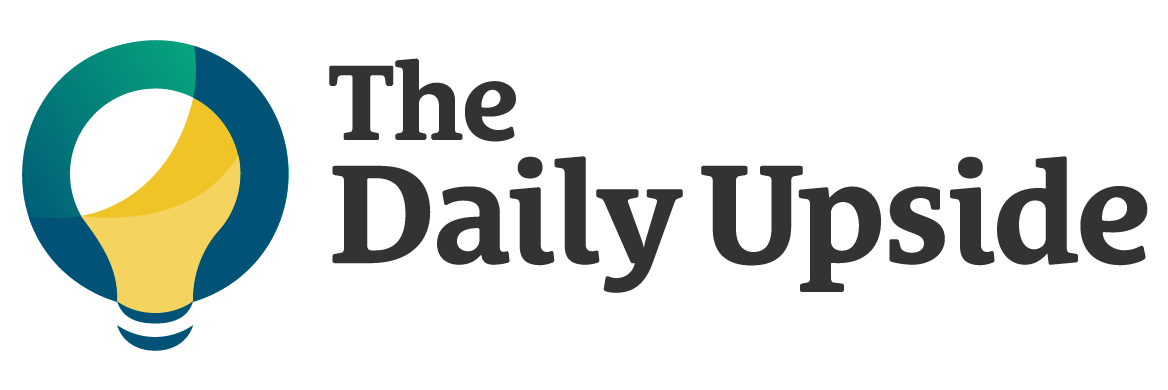

Schoolhouse/INI
Welcome back, Shit Givers.
This newsletter is a few hours late, so there are just SIX HOURS LEFT to get the Spring Member Drive discount — a whole year of INI Membership for just $45, or $3.75/a month.
If find our work valuable, if you want to see it continue, if you want to us to build super cool new tools, if you want to connect with other Shit Givers, get exclusive weekly Top of Mind updates and more — please grab this offer before it expires tonight!
(After you click the button, click “Annual” to get the discounted price)
⚡ Last week’s most popular Action Step was joining Third Act, the new community of Americans over the age of sixty who are raising hell, determined to change the world for the better.
👩💻 You can read this on the website
🎧 Or you can listen to it (Apple Podcasts, Spotify)
📺 Like to watch? Check out our YouTube channel
📧 New here? Sign up to join 11,500+ other Shit Givers
THIS WEEK
Is what you’re working on important?
Plus: The cleanest produce, a mosquito factory, lots of rooftop solar, autonomous GPT, maybe, and the latest with the Colorado River
TOGETHER WITH SPONSOR
Get insightful business news that respects your time and intelligence.
The Daily Upside is a business newsletter that covers the most important stories in business in a style that's engaging, insightful, and fun.
Started by a former investment banker, The Daily Upside delivers quality insightsand surfaces unique stories you won't read elsewhere
What We Can Do
⚡ Climate change and mental health are inextricably linked. Get some help with the Climate Mental Health Network.
⚡ Live in or own a multi-family building? Check out how BlocPower can help electrify it.
⚡ If you’re like “I wonder if my town or state has e-bike rebates”, here’s a Google Sheet with every known rebate in the country
⚡ Start a student alliance for tech ethics at your university with the Techshift Alliance.
What are you working on?
Imagine it’s 1986 and you’re in New Jersey—
Look, I’ll answer the obvious question before you ask it. No, this post is (sadly) not an ode to Bruce Springsteen’s criminally under-appreciated banger, Tunnel of Love.
—anyways, also in 1986 in New Jersey, the famously multidisciplinary Bell Labs was almost 60 years old and still killing it.
The world’s super-nerds, all intentionally working in close proximity, had already invented much of the underlying technology we rely on today, from transistors to UNIX and the C programming language, to DSL modems, fiber optic cables, f’ing LASERS and — the backbone of our future — the solar cell.
But I’m not here today to tell you about any of those inventions, nor the storied offices and labs where they were birthed.
I’m here today to talk about the cafeteria.
Mathematician Richard Hamming, father of a bunch of math concepts I couldn’t begin to understand, usually ate lunch at the physics table.
But one day he realized that, however exciting the physics table may have been, “I already knew a fair amount of mathematics; in fact, I wasn't learning much.“
So the next Tuesday (I do not know which day it actually was, Tuesday seems reasonable), Hamming wandered over to the chemistry table, carrying a tray packed with pudding and sloppy joes, and asked, “Do you mind if I join you?”
The chemistry jocks looked up into the face of a man who has a whole bunch of math concepts literally named after him and quickly approved his request, not having any idea his true intentions.
A few bites of proto-Hamburger Helper later, Hamming broke the ice with a simple question for his new friends: “What are the important problems of your field?”
America’s chemistry luminaries filled him in, and then everyone cleared their trays and went about their work day.
About a week later, Hamming sat down again at the chemistry table and asked his new friends, super cool-like, “What important problems are you working on?” To which I imagine there were plentiful, reasonable answers.
But apparently Hamming wasn’t satisfied with their answers, because, by his own account, he joined the chemistry table again just a few days later — the same table that had welcomed him so warmly not long ago — and revealed his true intentions.
“If what you are doing is not important, and if you don’t think it’s going to lead to something important, why are you at Bell Labs working on it?”
Wow. Thanks, bud!
Reader, offices may be a thing of the past, but let me tell you: this isn’t the way to make friends in the cafeteria.
However.
I think Hamming was on to something.

